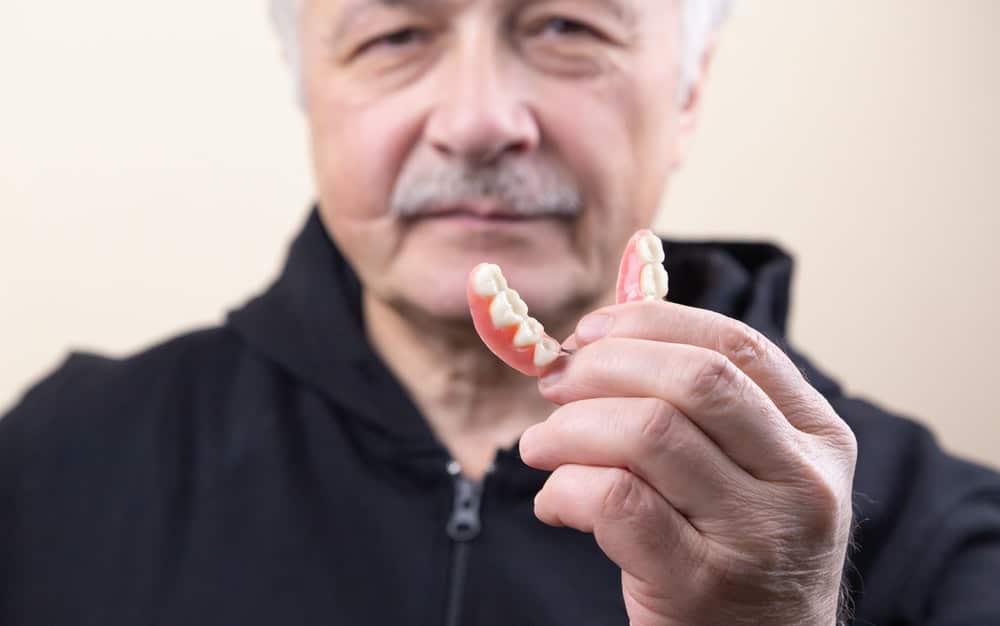Are you wondering how dentures should fit in your mouth? Then take the time to learn how to confirm if you have them fitting right. The risks that come with a poor fit are not to be ignored. An uncomfortable or painful bite is often the first warning sign. You should visit your dentist to have your dentures checked regularly.
If the problem suddenly arises after having the dentures a while, it’s always good to immediately check on the issue. Oral injury and infection can be at an increased risk when damaged dentures are ignored.
Care and Maintenance
Ill-fitting dentures can cause pain and discomfort as well as increased risk of infections. . If you didn’t already know:
- Poor-fitting dentures cause discomfort,
- This discomfort can result in ulcerations and cuts,
- Cuts and ulcers are at risk of infection underneath dentures.
Simply put, the risk of oral infection is not something to ignore. You should make sure your dentures properly fit in your mouth for comfort and health. Read on to learn how you can do that and avoid the discomfort of ill-fitting dentures.
If your new or old dentures give you discomfort, you should see your dentist as they may require adjusting or relining. Dentures should be comfortable and this may take time and multiple adjustments for your dentist to get them just right.
Both upper and lower dentures come with different standards for an optimal fit. With the upper dentures, you should feel a good suction right away. The bottom can take some work as your tongue can initially try and move the dentures around and you learn to keep them in place. Lower dentures might not feel as secure as upper dentures. If they continue to feel loose or uncomfortable, talk to your dentist about options to use implants to help secure them and increase their fit and comfort.
Using Denture Adhesive
Denture adhesive can help provide additional support to your dentures. The adhesive helps seal the fit and can reduce the denture`s movement when eating, laughing and talking.. This adhesive material typically lasts for 12 hours so can be applied to your dentures in the morning and cleaned off at night so the dentures are clean and ready for new adhesive the next day.
Denture adhesive provides extra grip to your dentures. But, ensure not to use dental adhesive long term to treat poor-fitting dentures. If your dentures require constant use of denture adhesive to stay in place you should see your dentist so they can offer a more permanent solution for better fitting dentures.
Having Your Denture Adjusted or Relined
Your gums and jawbone continually change especially when teeth have been removed. Your dentures should be regularly checked by your dentist and any sore spots or points of irritation can be adjusted. A slight adjustment by a dentist can help alleviate discomfort and improve fit without reducing the functionality or durability. With some partial dentures, a modification to the retention level of the clasp can also make a difference. Full dentures will require relining every few years to ensure your dentures continue to match your changing gums and bone levels. Relining is quick and can increase the fit of a denture dramatically.
Consider Giving Your Denture More Support
Additional support to your dentures can improve their functionality and durability. One way of adding support is by using locator implants. These implants change the denture from being supported by the gums to being supported by implants. As the denture clicks onto the implants the denture can be more stable. These “posts” can completely change your denture bite’s strength and comfort especially for people struggling with full lower dentures. .
Adding locator implants can go a long way in securing the strength of your lower dentures. Lower dentures can often feel more uncomfortable than upper dentures, and the perfect fitment can be hard to find. But, you can make the bottom dentures more comfortable and stable by using locator implants.
Stay on Top of Your Denture Fit
Your dentures may become less comfortable with time as your mouth changes. Due to these changes you should look to replace your dentures every 5-10 years. For example, bone loss can change how your dentures fit and cause pain, discomfort, and a higher risk of oral infection.
Sudden damage to your dentures should be checked immediately. A quick dentist visit is in order if you notice any cracking, breaking , or loss of shape to help stop any cuts or ulcers to the gum from sharp or broken bits of denture.
Are you unsure if your dentures fit properly? Thinking about adding support? Contact us at Beaches Dental Mona Vale to organize an appointment to discuss your future options!

